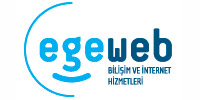The importance of content on a website cannot be overstated, especially in the context of SEO (Search Engine Optimization) and user engagement. Content serves as the foundation upon which a website's relevance, credibility, and visibility are built. Here are several reasons why content is crucial for a website:
- Relevance and SEO: High-quality, relevant content is essential for SEO success. Search engines like Google prioritize websites that provide valuable and informative content to users. By creating content that is optimized for target keywords and addresses the needs and interests of your audience, you increase the likelihood of your website ranking higher in search engine results pages (SERPs).
- User Engagement: Compelling content keeps visitors on your website longer and encourages them to explore further. Whether it's blog posts, articles, videos, or infographics, engaging content captivates users, encourages social sharing, and fosters a sense of community. This can lead to increased website traffic, lower bounce rates, and higher conversion rates.
- Building Authority and Trust: Well-researched, authoritative content establishes your website as a credible source of information in your industry or niche. When users find valuable insights, expert opinions, or helpful resources on your website, they are more likely to trust your brand and return for future visits. Consistently delivering high-quality content reinforces your authority and builds long-term relationships with your audience.
- Educating and Informing: Content allows you to educate your audience about your products, services, or industry-related topics. By addressing common questions, providing in-depth guides, or sharing how-to tutorials, you empower users to make informed decisions and build trust in your brand. Informative content also positions your website as a valuable resource that users turn to for knowledge and expertise.
- Driving Conversions and Sales: Content plays a crucial role in the customer journey, guiding users from awareness to consideration and ultimately to conversion. Whether it's persuasive product descriptions, customer testimonials, or case studies, compelling content helps to persuade visitors to take desired actions, such as making a purchase, signing up for a newsletter, or requesting a demo.
In summary, content is the lifeblood of a website, driving organic traffic, engaging users, establishing authority, and ultimately driving conversions. Investing in high-quality, relevant content is essential for the success of your website and your overall digital marketing strategy.
